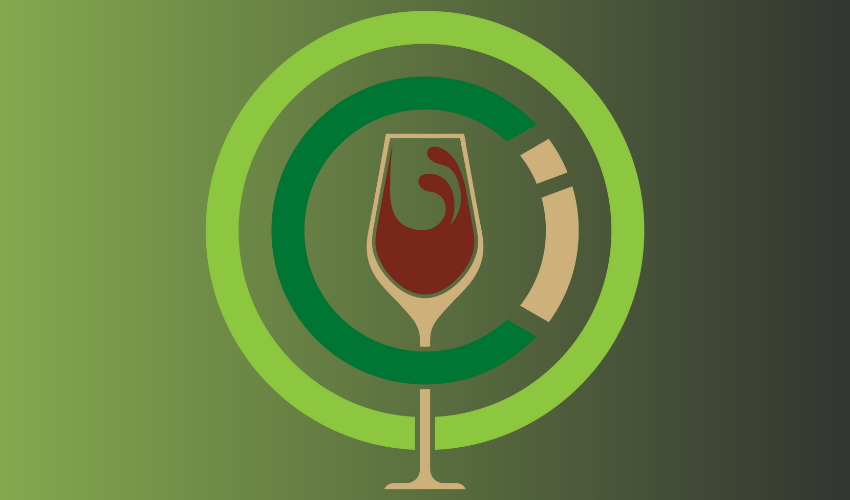Why You Should Use French Oak To Enhance Your Wine
09/27/24 / | Articles

When it comes to enhancing the flavor of wine, few tools are as powerful as French oak. Whether you’re producing a bold red or a crisp white, the introduction of French oak can elevate your wine, providing layers of complexity and depth.
Traditionally, winemakers used full oak barrels, but with advancements in winemaking techniques, French oak now comes in a variety of forms, such as chips, cubes, and staves—offering flexibility and control over flavor extraction. From beginners to seasoned winemakers, French oak offers an excellent opportunity to take your wine to the next level.
In this discussion, we’ll explore the history of oak in winemaking, introduce what makes French oak unique, explain why you should use French oak to enhance your wine, explore what enhancements you can expect, and reveal the situations in which you should not use French oak. Let’s begin!
A History Lesson In Oak
Oak has been an integral part of winemaking for centuries, dating back to ancient civilizations. It has been estimated that the use of oak to transport, store, and enhance wine and other beverages has been around for over 2000 years. The use of oak barrels for aging wine can be traced back as far as the Romans, who recognized that oak imparted desirable flavors to their wines. The tradition continued through the Middle Ages, where monasteries played a crucial role in preserving winemaking techniques, and continues today, where many vineyards still use the classic oak barrel to age their wines.
In regards to French oak specifically, in France, oak forests became the preferred source for barrels due to their dense grain and unique flavor profile. The Limousin and Allier forests are particularly renowned for producing high-quality oak. After experimenting, the French began to understand the nuances of how different oaks affected wine—leading to a revolution in wine aging.
Fast forward to the present, and oak still remains vital in the winemaking process. Only in recent times has oak been explored in different methods, such as in the form of oak chips or oak cubes. From Roman times, to the Middle Ages, and even up until today, you can see that oak has seen its fair share of use to enhance wine.
What Is It That Makes French Oak Unique?
French oak has distinct characteristics that set it apart from other types of oak, such as American oak. The unique flavor compounds present in French oak come from its tight grain, which slows the oxygen exchange during aging. This slower maturation process allows the wine to develop subtle flavors and aromas without becoming too powerful.
The key components that contribute to the uniqueness of French oak include:
-
- Vanillin: Imparts vanilla flavors, often described as creamy and smooth.
- Tannins: Provide structure and complexity to the wine, enhancing mouthfeel.
- Lactones: Add sweet, coconut-like notes, which can be particularly appealing in red wines.
Another thing that makes French oak unique when compared with other types of oak comes from its unique, complex flavor profiles that it can impose on wine. For example, take a look at our two flavor charts below. In flavor chart 1, you can see our American Cubes flavor profile. In flavor chart 2, you can see our French Cubes flavor profile. You will notice that as an entirely, the French oak provides more flavor notes for your wine as opposed to its American counterpart.
Flavor Chart 1
Flavor Chart 2
Finally, the unique toasting process it undergoes before being used is essential to making it excellent for winemakers. Toasting involves exposing the interior of the barrel to heat, which caramelizes the natural sugars within the wood and creates a range of flavor compounds. This process can be tailored to achieve different flavor profiles, from light to medium all the way to heavy toast, resulting in a wide array of aromas and tastes in the wine.
As you can see, choosing the right type of oak is very important whenever it comes to enhancing your wine. You must decide what flavors you would like to impose on the wine as well as determining your aging time and your toast level.
Why You Should Use French Oak
Using French oak has become a norm for many winemakers over the years. Some will tell you that you have to use French oak in order to get the best-tasting wine. While we don’t completely agree with that statement, we do believe that French oak is a solid wood choice for enhancement and can yield significant benefits. Below are 5 benefits that you will see from using French oak.
Flavor Complexity
French oak contributes a rich collection of flavors to wine, including spices, nuttiness, and subtle fruit notes. This complexity can elevate a wine from ordinary to extraordinary, making it taste better and more likely to impress your friends and family.
Improved Aging Potential
Wines aged in French oak tend to develop better aging potential due to the controlled oxidation process. This means that your wines may not only taste better now but can also improve with age.
Versatility
French oak can be used in various forms, including cubes, chips, staves, etc., allowing winemakers to tailor the oak influence based on their specific needs. For example, using our French oak chips will allow for a quicker infusion if you are on a time crunch.
Market Demand
For all of our business readers out there, French oak can allow you to elevate your wines that you sell to the public. In the present day, consumers are increasingly discerning about the quality of the wines they purchase. Wines aged in French oak often command higher prices and can be more desirable in the marketplace.
Health Benefits
Modern studies suggest that wines aged in oak contain higher levels of antioxidants that help with strengthening your immune system and protecting your health. Additionally, wine that is aged using oak contain a unique tannin, called roburin, that helps protect your liver and decrease negative side effects such as fatigue [source].
What Specific Enhancements Should You Expect?
Using French oak in winemaking can lead to remarkable enhancements in both flavor and aroma profiles. One of the primary benefits is the subtle complexity it adds. French oak often imparts gentle notes of vanilla, clove, and allspice, which beautifully complement the inherent fruit flavors of the wine. Additionally, many winemakers report hints of almond and hazelnut, especially in white wines, which contribute depth to the overall profile.
Wines aged in French oak also exhibit a bouquet of floral and fruity aromas that enhance the drinking experience. The presence of earthy undertones can ground the wine, adding a layer of complexity that appeals to seasoned wine drinkers. This intricate interplay of flavors and aromas creates a unique sensory experience that distinguishes French oak-aged wines from others.
Moreover, the integration of fine tannins from French oak contributes to a silky texture and a more luxurious mouthfeel. The tannin structure provided by French oak enhances the wine’s overall balance, creating a harmonious blend that elevates the quality of the final product. These enhancements make French oak an invaluable choice for winemakers seeking to create exceptional wines.

Say No To French Oak When...
While French oak offers many advantages, there are certain situations in which it may not be the best choice. For lighter-bodied white wines, such as Sauvignon Blanc or Pinot Grigio, the strong flavors imparted by French oak can overwhelm the delicate nature of these wines. In such cases, using neutral barrels or stainless steel may be more appropriate to preserve the wine’s subtle characteristics.
Additionally, if you’re producing wines intended for early consumption, the lengthy aging process associated with French oak might not be suitable. For quicker results, alternatives like oak chips or stainless steel can provide the necessary flavor enhancements without the extended aging time. This can be particularly important for wineries looking to meet immediate market demands.
Cost is another consideration; French oak barrels can be significantly more expensive than American oak or other aging methods. If you’re on a tight budget or producing wines on a larger scale, it may be more practical to explore less expensive options. Moreover, some wines benefit from the stronger, bolder flavors of American oak. If your goal is to achieve a more pronounced oak influence, opting for American oak might be a better fit for your specific wine style.
Wrapping Up
In conclusion, the use of French oak in winemaking offers numerous benefits that can significantly enhance the quality and complexity of your wines. From its historical significance to its unique flavor profile and the versatility it provides, French oak remains a top choice among winemakers around the globe.
By understanding the enhancements you can expect and recognizing the situations where French oak may not be the ideal option, you can make informed decisions that elevate your winemaking process.
If you’re ready to explore the world of French oak, check out our range of oak cubes, chips, staves, and more here. Additionally, if you have any other questions or want to know what oak would be right for you, feel free to contact an expert today.
Last Updated: September 28, 2024.
About Oak Chips, Inc.

At Oak Chips Inc., we are a family-owned business dedicated to providing premium oak products that enhance the flavors and aromas of wines, spirits, and more. With a focus on quality and craftsmanship, our selection includes French and American oak cubes, chips, staves, barrel inserts, and more, all designed to elevate your winemaking experience.



